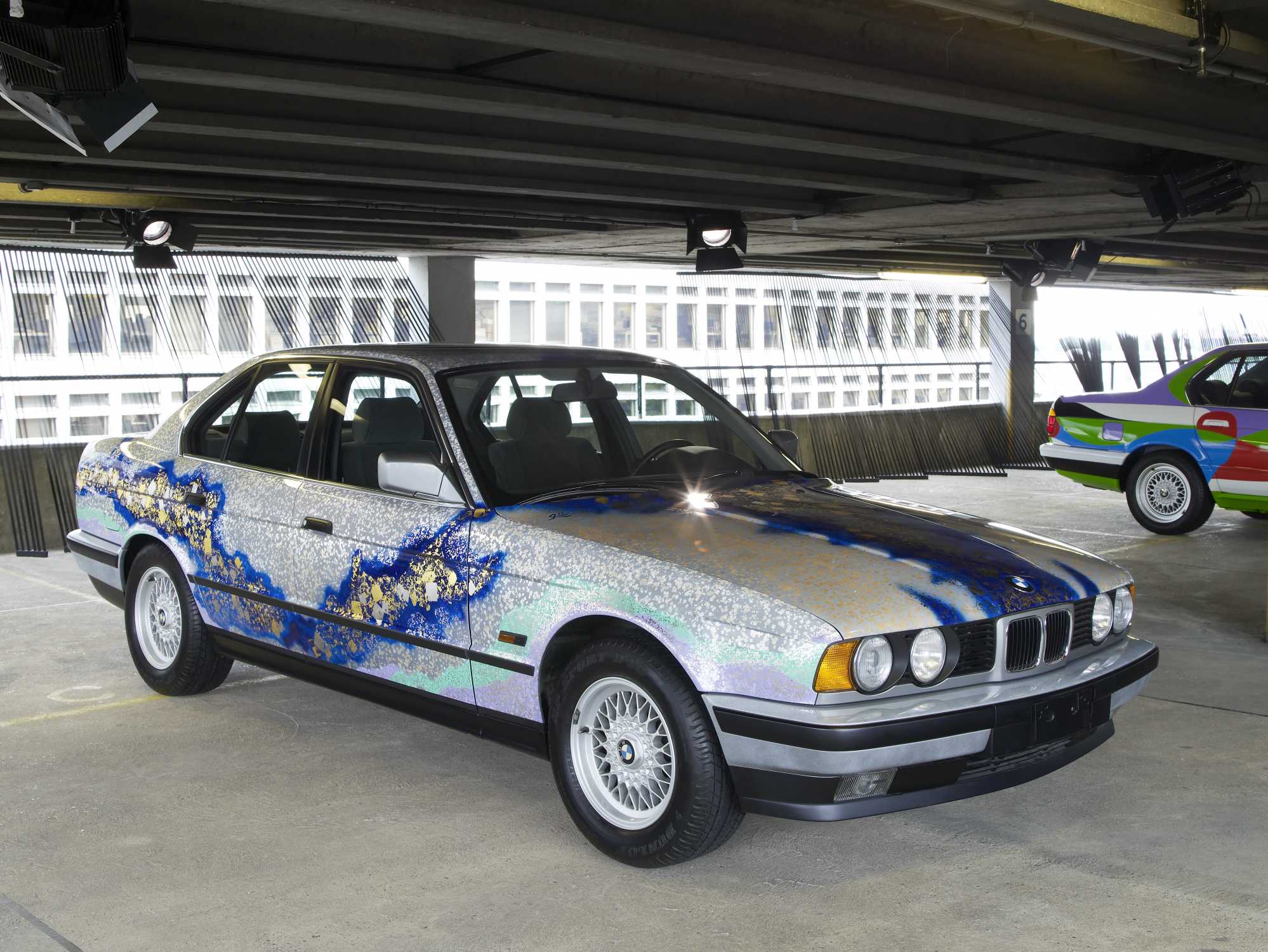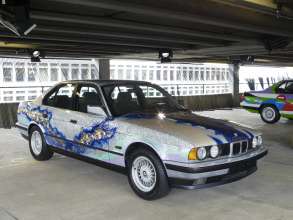"I did not become fully aware of the BMW’s distinctive contours until after the car had been fully dressed in colour."
When designing the car, it was Matazo Kayama‟s intention to emphasize the fascination he held for BMW technology and create vivid associations with modern Japan. In order to do this, he continued with his earlier theme "Snow, Moon and Flowers", this time, however, using the airbrush technique – he intensified contrast and elegance by applying fine shades of blue to the silver bodywork. By means of extremely intricate techniques such as "Kirigane" (metal cutting) and "Arare" (foil print) he cut out small pieces of silver, gold and aluminium foil and transferred them to the bodywork.
Born in Kyoto, Japan, in 1927, Matazo Kayama studied painting and traditional Japanese arts before exhibiting his works for the first time in 1949. By integrating contemporary styles into traditional arts, he was soon able to contribute substantially towards achieving a breakthrough of new forms of expression in Japan. His works include the Indian ink ceiling decoration in the Japanese Kuojoni temple, work with jewellery and metal as well as the interior design of Jumbo jets and luxury cruisers – each being proof of Kayama‟s diverse creative abilities.
The BMW 535i
- six-cylinder inline engine
- overhead camshaft
- displacement: 3430 cm³
- power output: 211 bhp top
- speed: 227 km/h
Kayama did not design his Art Car for use in racing and on the road, but chiefly for exhibition purposes. This decision facilitated the application of the impressive but delicate Japanese foil print technique when designing the vehicle.

